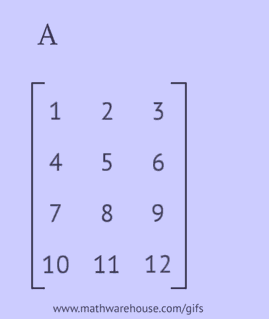ArrayList<Integer> factors(int num)
Description: This method returns an ArrayList populated with the factors of num
| Method Call | return value/output |
| factors(5) | {1,5} |
| factors(10) | {1,2,5,10} |
int sum(ArrayList<Integer> nums)
Description: This method returns the sum of all elements in the list
| Method Call | return value/output |
| sum({1,5}) | 6 |
| sum( { 3,4, 2 } ) | 9 |
void printReverse(ArrayList<String> strs)
Description: This method prints all elements in reverse order
| Method Call | return value/output |
| printReverse({“a”,”b”}) | “b” “a” |
| printReverse( “xu”, “t”) | “t” “xu” |
double mean(ArrayList<Integer> nums)
Description: This method returns the arithmetic mean of all elements in the list
| Method Call | return value/output |
| mean({1,5}) | 3 |
| mean( {3,4, 2 } ) | 4.5 |
void printEvens(ArrayList<Integer> nums)
Description: This method prints out all even numbers
| Method Call | return value/output |
| printEvens({1,5 , 6}) | 6 |
| printEvens( {3,4, 2 } ) | 4 , 2 |
ArrayList<Double> everyOtherPi(ArrayList<Double> nums )
Description: This method returns a version of the input ArrayList with every other value changed to Math.PI
Do NOT make a new ArrayList in this method
| Method Call | return value/output |
| everyOtherPi ( {1,8,5,0, 7} ) | {1, 3.1415 , 5 , 3.1415 , 7 , 3.1415 } |
| everyOtherPi({0,4,3,5} ) | {0, 3.1415 , 3 , 3.1415 } |
boolean isIdentical(ArrayList<String> strs1 , ArrayList<String> strs2)
Description: This method returns true if each element in the two ArrayLists is the same
| Method Call | return value/output |
| isIdentical({“ab”, “a”} , { “x”, “a”} ) | false |
| isIdentical({“ab”, “a”} , { “ab”, “a”} ) | true |
| isIdentical({ “xy”} , { “XY”} ) | false |
int largest(ArrayList<Integer> nums)
Description: This method returns the largest element in nums
| Method Call | return value/output |
| largest({1,5 , 6}) | 6 |
| largest ({3,4, 2 } ) | 4 |
ArrayList<Integer>removeVal(ArrayList<Integer> nums, int val)
Description:This method returns an ArrayList with all instances of val removed
Do NOT make a new ArrayList in this method
| Method Call | return value/output |
| removeVal({1,5 , 6}, 5 ) | {1, 6 } |
| removeVal ( {3,3,3,4, 2} , 3 ) | {4,2} |
TO do :
PrimesFactory
